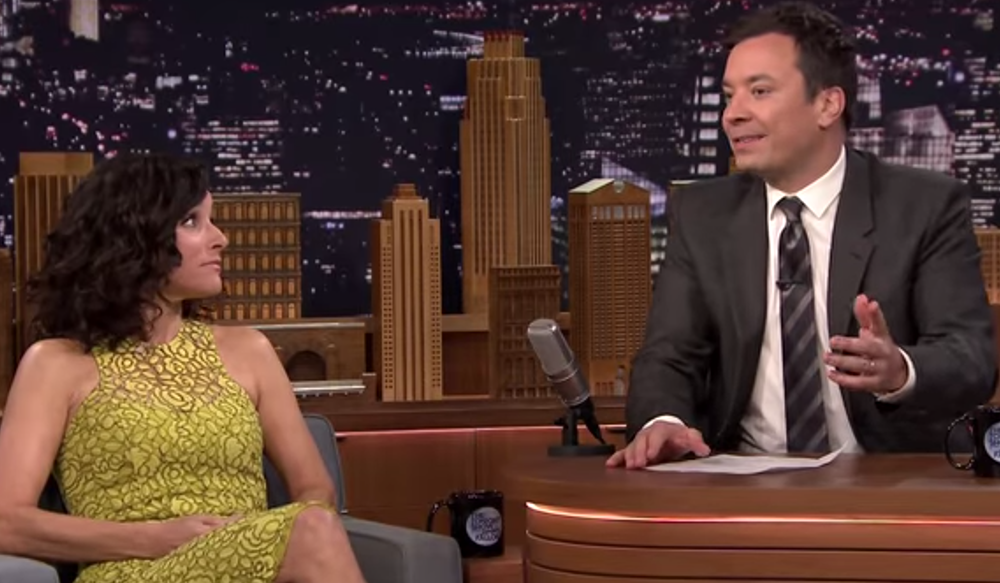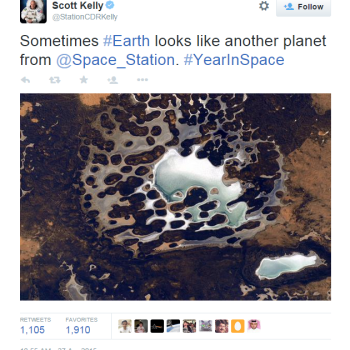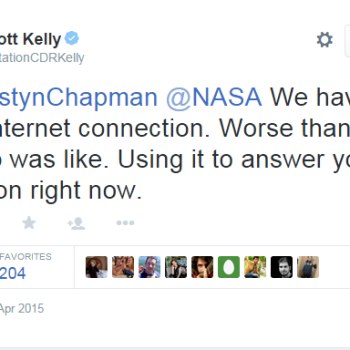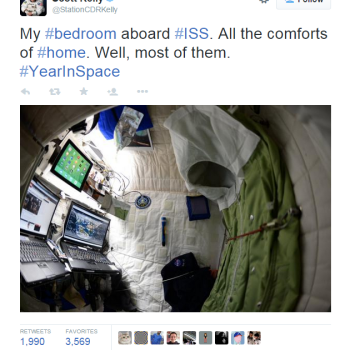365 days. 52 weeks. One year. Astronaut Scott Kelly will spend the next year circling the globe more than 5,800 times high up above the earth (200+ miles) in the International Space Station (ISS).
Commander Kelly is taking part in a truly extraordinary experiment that will allow scientists to learn how the human body might react to long-term space travel (i.e. future travels to Mars). Kelly is stationed at the ISS for a year, a full six months longer than any other human has spent in space.
As a huge NASA fan and science geek, there is so much to appreciate about this project. I applaud Commander Kelly’s willingness to participate and NASA’s determination to making this happen despite continued threats of funding cuts in recent years. Science aside, one of the most remarkable things about it is the access we’re given, thanks to social media and new technology.
A few weeks back, Kelly was tweeting Jimmy Fallon and Julia Louis-Dreyfusfrom the ISS, in response to a video Fallon posted on his YouTube page (below). He’s answering other questions posed via Twitter, too. And, TIME is creating a web series about the mission. Astronauts can share their journeys with the world, while in outer space, making it possible for us all to feel that we’re part of this mission.
Jimmy Fallon & Julia Louis-Dreyfus
The Tonight Show starring Jimmy Fallon
A few weeks back, Kelly was tweeting Jimmy Fallon and Julia Louis-Dreyfus from the ISS, in response to this video Fallon posted on his YouTube page. He’s answering other questions posed via Twitter, too. And, TIME is creating a web series about the mission. Astronauts can share their journeys with the world, while in outer space, making it pos
From a communications standpoint, creating and using the #YearInSpace hashtag is great strategy. Audiences can get engaged and follow along. According totopsy.com, it was used more than 7,000 times over the past week alone.
On a larger scale, using popular and social media to communicate about a major advancement allows it, and science in general, to be more accessible to the masses. This is immensely important, as it seems to me that not enough Americans care about science, follow big developments, and understand how they impact our lives. Though, I was thrilled to recently see that NASA’s popularity is high.
Science is sometimes tricky to understand. That’s why we need more great science communicators who can translate important concepts in a fun and colloquial way.Neil deGrasse Tyson is a rock star for exactly this reason. Commander Kelly has quickly become an excellent communicator and science ambassador as well, using Twitter as his medium. In order for the greater population to understand science, and why it’s so vitally important to every aspect of our lives, we need 100 more Tysons and Kellys.
But, tweeting from space about major scientific advances is a great step towards that goal. And, it is just so darn cool.
P.S. In addition to thinking science is really awesome, DG+CO has been proud to help science-related clients communicate about their vital work. We’ve worked withScience Friday, the Origins Project at ASU and Seed Savers Exchange, among others.



